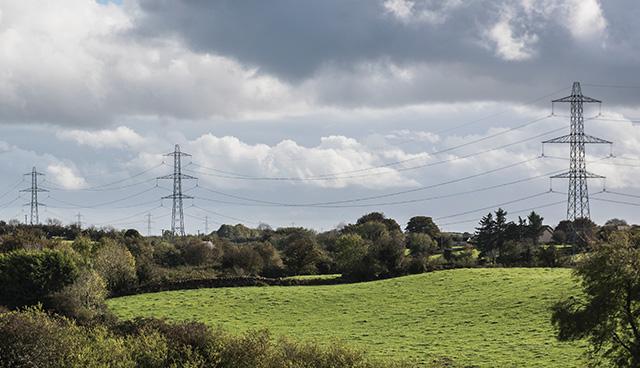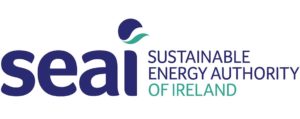
Energy transitions: Lessons from Europe and the US
12th November 2018
Brexit and Ireland’s all-island energy market
12th November 2018Support Scheme for Renewable Heat: Turning up the heat on energy performance

In September 2018, the Minister for Communications, Climate Action and Environment launched phase one of the Support Scheme for Renewable Heat. The scheme, administered by SEAI, will ultimately support renewable heat energy generation from qualifying projects and useful heat incorporating biomass boilers, heat pumps, CHP and anaerobic digestion heating systems.
We have to transition from fossil fuels to renewable energy and this support scheme is a key intervention with real sustainability credentials that will directly impact Ireland’s carbon emissions. The scheme is open to commercial, industrial, agricultural, district heating, public sector and other non-domestic heat users in the non-ETS sector.
The primary objective for the scheme is to incentivise investment in renewable heat generation, making a 3 per cent contribution to Ireland’s 2020 renewable energy target whilst also reducing greenhouse gas emissions. Switching to renewable heat makes financial and environmental sense. Two different forms of aid will be available. Firstly, the capital grant for heat pump heating systems, launched in September. This will be followed by a an operating aid scheme for qualifying boilers and high-efficiency CHP using biomass or biogas. This particular phase is pending formal EU state-aid approval, expected before the end of 2018.
It’s worth considering for a moment the perspective of the energy user and the supply chain. Businesses probably don’t necessarily rank the achievement of national energy targets very highly alongside their business priorities. Instead, they consider investment opportunities and decide based on core business investment criterion. This will most likely be the strategic enablers for business growth, developing higher levels of productivity and efficiency, an attractive internal rate of return, taking cost out of the business and addressing risks associated with competitiveness. This is all the more relevant presently with the impact of Brexit on Irish business.
The combination of the renewable heat support scheme and SEAI’s EXEED Certified programme offers a new value proposition under the common banner of energy performance. A solid first principle is to consider opportunities to reduce energy consumption first through efficiency measures. Then, alternative energy sources, including opportunities in renewable heat can be explored. SEAI now offers support for both energy efficiency and renewable heat through these two schemes. Capital support can be significant at the project level and operating aid over a period of 15 years. Having said that, EXEED certification is not a prerequisite for the renewable heat scheme.
Back to the renewable heat scheme. The new grant just launched provides 30 per cent capital support against eligible expenditure for either retrofit or from design incorporating heat pump technology. The scheme targets heating systems in any non-domestic, commercial or public sector building for space and/or water heating. District heating applications are eligible where heat is generated centrally by an operator and supplied by commercial arrangement. Process heat applications are also eligible. This should make the scheme very interesting to energy service and engineering design companies to innovate in industrial applications such as HVAC, hot water or process heat requirements.
Core criterion for eligibility will be a classification of renewable heat generation versus an energy efficiency improvement action. The heat source must therefore be from ambient or naturally occurring medium e.g. outside air, ground source heat, ground water or underwater sources. Generally, so called parasitic heat sources will not be considered renewable. However, there will be exceptions. So, for example, where waste heat is exhausted to outside air, into the ground or water, and then re-captured as the heat source it would be considered eligible renewable heat.
Another important attribute is the heat pump coefficient of performance (COP) and its seasonal performance factor. The scheme requires a seasonal performance factor of 2.5 as a minimum. This is to ensure minimal performance but also in consideration of the primary energy factor in electricity generation supply.
Heat pump performance in buildings depends completely on condition and design characteristics. In simple terms, buildings with higher levels of insulation and lower air infiltration will perform better. To align with this principle and to assure performance, buildings that meet 2008 Building Regulations elemental U-Values will be eligible without upgrade. Older buildings which have been upgraded and can demonstrate such compliance are eligible. Some exceptions may apply in the case of heritage buildings or non-economically viable upgrades. In these cases, however we have included a requirement of EXEED Certified which provides a standardised approach to examine the asset, energy balance, energy performance improvement actions and decisions and validation. The EXEED scheme supports the upfront cost of feasibility studies and related professional services.
“The scheme is a significant intervention and will support a new indigenous industry in Ireland.”
Eligible costs, which may extend beyond the heat pump to the wider heating system, will only be those costs over those that would been otherwise invested in the absence of the grant. It is the difference between the proposed investment incorporating the complete heat pump system and an alternative credible investment, technically comparable, providing the same requirements. This is expected to vary and will be dependent on the investment business case or driver. It will also be different if a new build, major renovation or a retrofit upgrade. In some cases, it may be the whole costs if uniquely identifiable and directly attributed to renewable heat.
The next phase of the scheme will provide support in the form of operating-aid for biomass and anaerobic heating systems. This is the long-awaited support for biomass and biogas heating systems. It will not include, at least not in this phase, support for bio-methane grid injection. The scheme is a significant intervention and will support a new indigenous industry in Ireland. It offers new opportunities for business and in particular for the agri-business sector. It has of course seen plenty of attention in other jurisdictions, unfortunately for the wrong reasons. The lessons learned from others’ experiences has informed the design of the scheme including necessary financial controls.
The Scheme Overview provides the high-level outline of design, eligibility, and financial support structure and contract maintenance over a 15-year term. Its design encompasses financial controls including caps at programme and project levels, annual reviews of tariff levels and a windfall review process. The scheme will have strong budgetary controls and will provide real value for public money. There are also process controls that assures only useful heat generation is supported, to avoid unnecessary production of heat. Where available and appropriate, a comparable benchmark from the industry is requested as part of the application.
For businesses, switching to renewable heat will either be for financial or environmental reasons or both. It can fit with the values and social responsibilities of your business with a significant reduction in your carbon footprint. The use of biomass is reliable and efficient. The operating-aid will make it operationally attractive and a serious consideration for your business to develop own supply chain that is more sustainable and a more reliable source for your energy requirements into the future.
Organisations interested in learning more about the scheme can refer to the SEAI webpage https://www.seai.ie/sustainable-solutions/support-scheme-renewable-/
Contact:
John O’Sullivan
The Sustainable Energy Authority of Ireland (SEAI),
Three Park Place
Hatch St Upper,
Dublin 2
D02 FX65
Tel: +353 (0)1 808 2100

